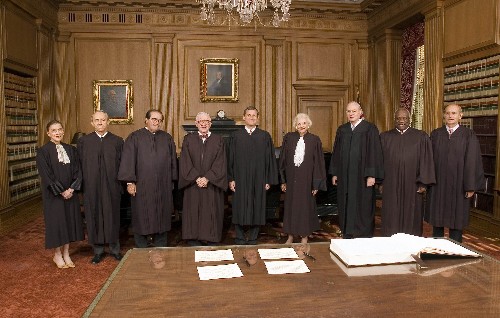上海劳动法律网
你在这里
III. Opinion Testimony

III. Opinion Testimony
The word opinion used in this context includes all opinions, inferences, conclusions, and other subjective statements made by a witness. A basic premise of our legal system is that,in general, witnesses should testify as to facts within their personal knowleidge and that the trier of fact should draw any conclusions therefrom. Therefore, the general policy of the law is to restrict the admissibility of opinion evidence, except in cases where the courts sure sure that it will be necessary or at least helpful. Of course,the difference between"fact" and" opinion" is matter of degree. Therefore,there cannot be any clear - cut opinion rule. ,
- Opinion Testimony by Lay Witnesses
- Opinion by lay witnesses is generally inadmissible. However, there are many cases where,from the nature of the subject matter,no better evidence can be obtained. In these cases, where the event is likely to be perceived as a whole impression ( e. g. , intoxication, speed) rather than as more specific components,opinions by lay witnesses are generally admitted.
- Situations Where Opinions of Lay Witnesses Are Admissible
- General Appearance or Condition of Person
Testimony that a person was" elderly," " about 60 years old," " strong,"" weak," or" ill" would be admissible,but testimony that a person is suffering from specific diseases or specific injuries usually requiring knowledge of an expert would not.
- State of Emotion
A witness would be permitted to testify that a person appeared" angry" or" was joking" but probably not that two persons were" in love" or appeared to have a strong affection for each other.
- Matters Involving Sense Recognition
A witness would be permitted to testify that an object was" heavy,"" red," " bulky," or that a certain beverage tasted like whiskey,
- Voice or Handwriting Identification
Lay opinion is permissible and often essential to identify telephone voices and handwriting. In these instances a foundation must first be aid to show familiarity with the voice or handwriting.
- Speed of Moving Object
- Value of Own Service
- Rational or Irrational Nature of Another’s Conduct(Sanity)
- Intoxication
- Situations Where Opinions of Lay Witnesses Are Not Admissible
- Agency or Authorization
When agency or authorization is issue, the witness generally may not state a conclusion as to her authorization. Rather she must be asked by whom she was employed and the nature, terms, and surrounding circumstances of her employment.
- Contract or Agreement
When the existence of an express contract is in issue, a witness generally may not state her opinion that an agreement was made. Rather she must be asked about the facts,the existence or nonexistence of which establish whether a contract existed.
- Opinion Testimony by Expert Witness
- Requirements of Expert Testimony
The expert may state an opinion or conclusion, provided the following conditions are satisfied;
- Subject Matter Must Be Appropriate for Expert Testimony
Under Federal Rule 702,expert opinion testimony is admissible if the subject matter is one where scientific, technical, or other specialized knowledge would assist the trier of fact in understanding the evidence or determining a fact in issue. This test of assistance to the trier of fact subdivides into two requirements;
- The opinion must be relevant(i. e. ,it must"fit" the facts of the case) ;and
- The methodology underlying the opinion must be reliable(i. e. ,the proponent of the expert testimony must satisfy the trial judge by a preponderance of the evidence that(i)the o- pinion is based on sufficient facts or data ;(ii) the opinion is the product of reliable principles and methods;and(iii)the expert has reliably applied the principles and methods to the facts of the case).
- Witness Must Be Qualified as an Expert
To testify as an expert,a person must have special knowledge,skill,experience,training,or education sufficient to qualify him as an expert on the subject to which his testimony relates.
- Expert Must Possess Reasonable Probability Regarding His Opinion
The expert must possess reasonable certainty or probability regarding his opinion. If the o- pinion of the expert is a mere guess or speculation, it is inadmissible.
Example;It would be error to permit plaintiff’s medical expert to testify that plaintiff’s symptoms" suggested" diabetes and" indicated" that the disease was caused by the accident.
- Opinion Must Be Supported by Proper Factual Basis
The expert’s opinion may be based upon one or more of these three possible sources of information; (i) facts that the expert knows from his own observation; (ii)facts presented in evidence at the trial and submitted to the expert, usually by hypothetical question; or (iii) facts not in evidence that were supplied to the expert out of court , and which are of a type reasonably relied upon by experts in the particular field in forming opinions on the subject. Note that the expert may give opinion testimony on direct examination without disclosing the basis of the opinion, unless the court orders otherwise. However,the expert may be required to disclose such information on cross - examination.
- Opinion May Embrace Ultimate Issue
Federal Rule 704(a) and the modem trend repudiate the traditional prohibition on opinions embracing the ultimate issue in the case. The rule provides;" Testimony in the form of an opinion or inference otherwise admissible is not objectionable because it embraces the ultimate issue to be decided by the trier of fact. "Note, However, that to be admissible under the Federal Rules, the expert opinion must" assist the trier of fact" to understand the evidence or determine a fact in issue. Thus,an expert’s conclusion that"X had testamentary capacity" is still inadmissible because it is not helpful to the jury.
- 浏览 3164 次

 邱国开律师,系本站主编,在司法机关从事过侦查和公诉工作数年,现执业于上海博和汉商律师事务所,长期专注于劳动法学、合同法、婚姻法学、公司法、刑法的研究,成功代理过大量案件,服务领域包括民商事案件代理、企业规章制度设计、合同文本的起草、公司法律顾问等。
邱国开律师,系本站主编,在司法机关从事过侦查和公诉工作数年,现执业于上海博和汉商律师事务所,长期专注于劳动法学、合同法、婚姻法学、公司法、刑法的研究,成功代理过大量案件,服务领域包括民商事案件代理、企业规章制度设计、合同文本的起草、公司法律顾问等。



